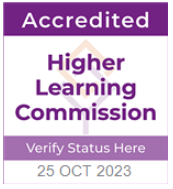Program Overview
The Master of Education in Educational Leadership (M.Ed.) at Columbia College is designed for certified K–12 teachers who are ready to take the next step into school or district leadership. Delivered fully online, the program builds the applied skills and professional competencies needed to lead schools effectively and meet the growing statewide demand for qualified educational administrators. It also serves as a direct pathway toward the Columbia College Education Specialist (Ed.S.) degree for those pursuing superintendent or advanced administrator certification.



